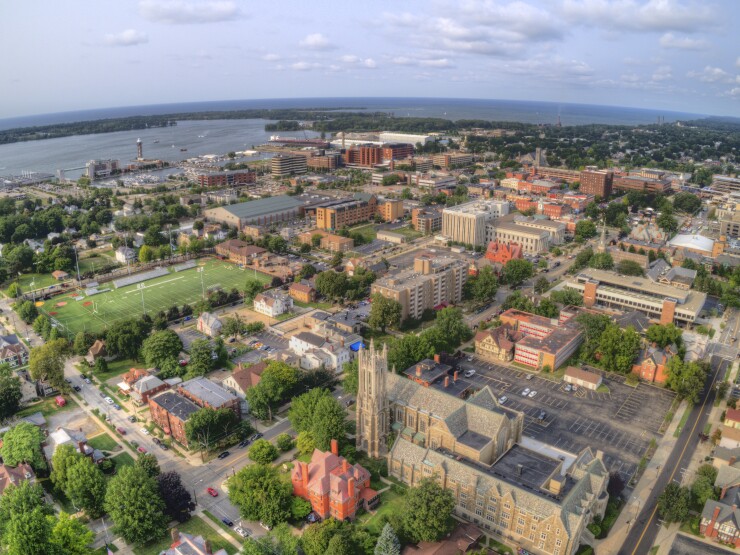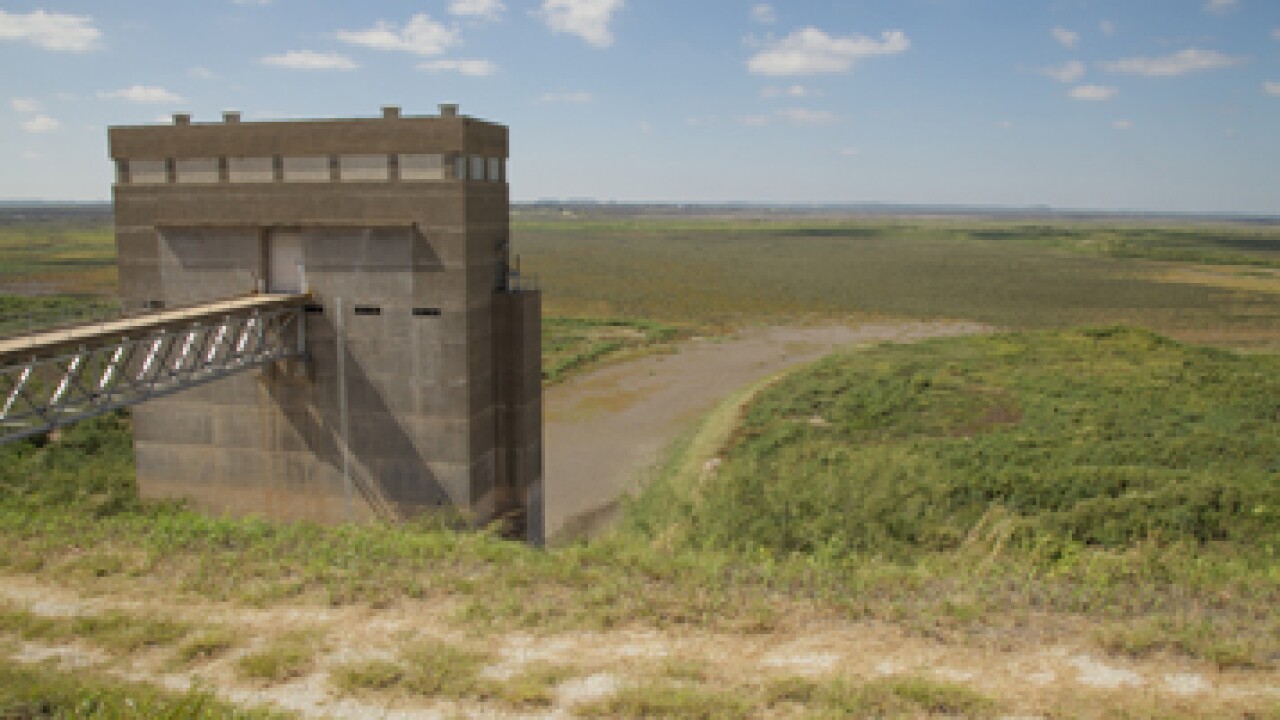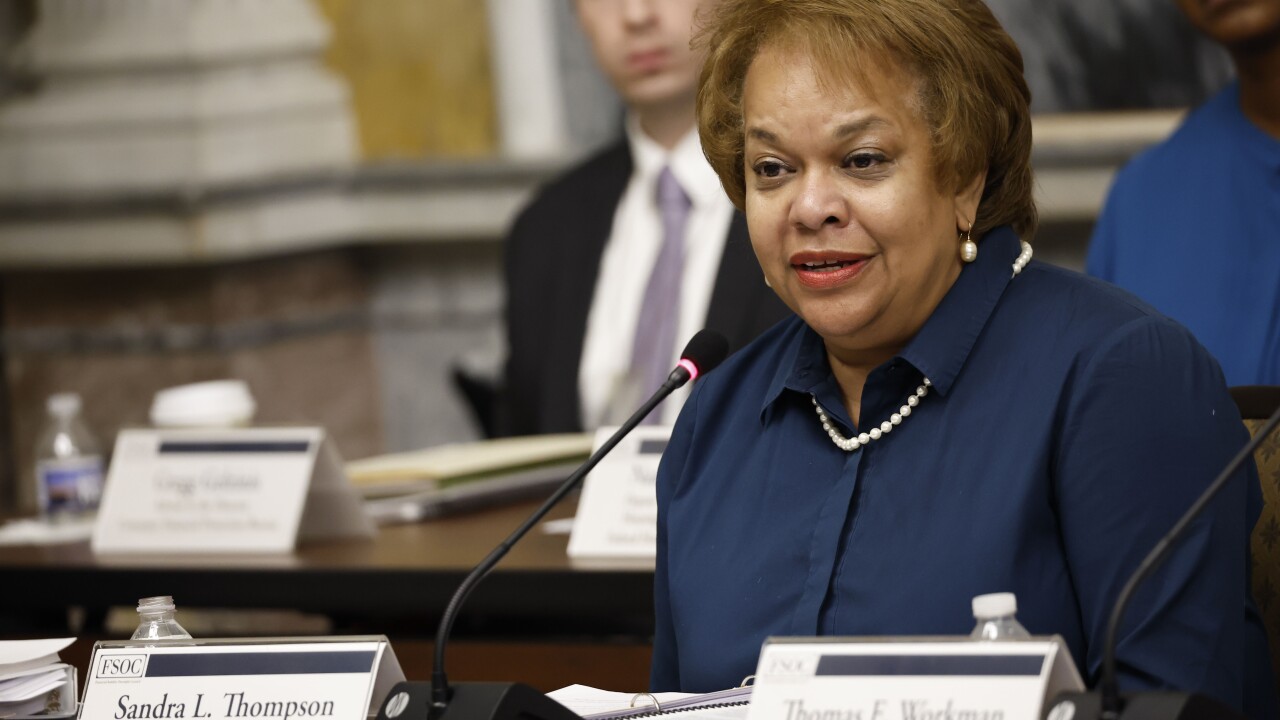A year after forming, the Erie County, Pa., land bank is compiling a list of blighted, tax-delinquent properties outside the city that need to be demolished or rehabilitated.
Thirty-five properties now make up that preliminary list. But much work remains, from determining the cost to tear down or renovate the dilapidated structures to prioritizing properties that are far enough along in the legal process that the land bank can easily acquire them.
"There's a lot of low-hanging fruit," said Amy Murdock, director of the Erie County Department of Planning and Community Development, which is managing the land bank.
The nine-member board was formed after state lawmakers in late 2017 earmarked $1 million of the county's gaming revenue from Presque Isle Downs & Casino for a land bank. Land banks take vacant, abandoned, blighted or tax-foreclosed properties and find new uses for them, often with the intention of putting them back onto the tax rolls. Land banks have the power to extinguish liens and clear property titles.
County Council and County Executive Kathy Dahlkemper appointed the board.
One of its first tasks was to reach a cooperative agreement with the city of Erie's land bank, which formed in 2016 but had no money to carry out its mission. The agreement seeded the city's land bank with $414,000 to address 20 distressed properties this year. About 65% of properties in the county that are on a tax-, judicial- or sheriff-sale list are located in the city.

In the meantime, Erie County's land bank has worked methodically to determine its own priorities and goals. With input from the board, Murdock developed a community survey and sent letters to boroughs and townships outside the city of Erie inviting them to participate. Nine communities responded: The city of Corry; the boroughs of Albion, Edinboro, North East and Waterford; and Fairview, Greene, McKean and Springfield townships.
"We've put together a guidance document and we're in a pilot phase," Murdock said. "We've been meeting with municipalities outside the city, all that were interested, doing walking and driving tours of those communities to see their priorities, to see what their issues and challenges are.
"We're trying to understand what they need out of the land bank," she said. "We'll be doing a deep dive into the selection process in the next couple of months. We'll be looking really strongly at shaping the criteria."
The land bank board has asked participating community leaders to identify their unique issues with blight, and the existing procedures and funding sources that they use to address it. The board has also encouraged those communities to work with their local school directors, establish an advisory committee to rate eyesore properties and to consider providing matching funds.
"There's a lot of ifs and a lot of info we need to collect," Jim Cardman, chairman of the land bank, said. "But by spring we hope to be funding these projects."
Blight abatement is difficult for any community, land bank member Brian McGrath said. McGrath served as a Millcreek Township supervisor for 25 years before retiring at the end of 2017.
"It has been an issue in Millcreek and continues to be an issue in Millcreek as it has been all throughout the county," McGrath said. "It's difficult to deal with because of the difficulty in acquiring property or actually taking action to eliminate the blight. The recent legislation that enabled counties to form land banks is a big boost because it helps to eliminate some of that red tape and speed up the process"
In addition to gaming revenue, the land bank is funded by a $15 additional fee on every recorded deed and mortgage. State law allows counties to use the money to address blight. So far, the fee has generated $152,000 for the land bank.
State law also allows land banks to share, for five years, up to half of the real property-tax revenue after a land bank-owned property is conveyed to a new owner. The revenue would help pay for future land bank projects.
Murdock said the nine communities are "all in different places."
Some municipalities have already taken possession of distressed properties, or have developers lined up to redevelop them.
Some have enacted "dangerous structure" ordinances, which enable them to take ownership of a property through the courts after proper code-enforcement steps are followed.
Other municipalities, though, aren't as far along in the process, or just don't have the manpower.
In that regard, the land bank board wants to provide not only funding for acquisition, demolition and rehab, but also to provide the services that will expedite the enforcement process, Murdock said.
She believes the land bank can play a proactive role in blight prevention, and help municipalities carry out their master plans.
"That's really what we're here for," she said, "to help them build a long-term strategy."





